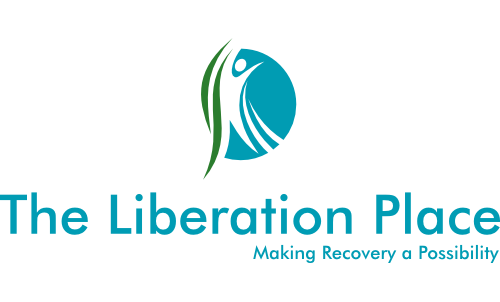Interpersonal Effectiveness
When we are practicing mindful awareness, building our ability to notice when our system goes into difficult and uncomfortable emotional experiences, we can use the skills of Distress Tolerance to manage the modes of behaviour that are using ineffective coping mechanisms designed to keep us “safe.” This provides the opportunity to then work on removing the rigidity to our childhood schema being 100% accurate all the time. We do this through the use of the skills we learn in the Emotion Regulation module. When all of this is working in full flow, we are on the road to Living the Life we Want to Live. So, what’s next? One of the most important things that many of us need to work on in Living the Life we Want to Live, something that is strongly tied to our unmet childhood needs, is our connection to other people.
Human beings need to feel connected, it’s innate in all of us, It’s the reason we survived and developed into the dominant species on the planet. It’s a fundamental need in our personality system to feel like we belong to some sort of tribe. At a primal level, it’s a matter of survival. Without it, fear becomes an ever present in our daily experiences. So, it makes sense that as we grow into this new way of being, we need to increase our ability to communicate with people within our individual community. Whether these people are those that we want to develop a connection with because they can support us in our journey, or if they are people we need to set boundaries with because they are consistently compromising our true core values and beliefs, Interpersonal Effectiveness provides the skills we need to turn these requirements into usable skills.
“Human beings need to feel connected, it’s innate in all of us, It’s the reason we survived and developed into the dominant species on the planet.”
~Steven Morris RP.
From a Dialectical Behaviour Therapy perspective, a healthy Interpersonal Interaction is defined as when two or more people share a reciprocal relationship, supporting each other in ways that are effective in achieving the desired outcomes for everyone involved. This is usually revolving around the ever changing needs of both the individuals, and the collective on the whole. This is a pretty broad, and extremely intellectualized way of looking at what healthy relationships are, but we can basically boil it down to describing the way that people want, and often need to coexist with each other in the world around them. This definition refers to the many different ways in which individuals are directly involved with each other, and explores how they communicate their wants, their needs, their thoughts and their feelings. Most people are striving for this reciprocal type of relationship in all areas of their lives. However, if you’re anything like me, creating these healthy interactions in all walks of life is often a lot harder than we expected it to be, for a variety of different reasons.
Interpersonal interactions include the way we talk to the people in our environment, as well as how we act when spending time together. For example, when people are watching a movie together, sharing a meal, or talking about their everyday life, they are participating in an interpersonal interaction with one another. Interpersonal interactions not only refer to the verbal communication aspects of our social experiences, but also the manner in which we communicate via our nonverbal cues too. Each of the skills laid out in the Interpersonal Effectiveness module of Dialectical Behaviour Therapy are intended to teach us how to be effective in achieving our own goals without alienating the other person or losing our own sense of self-respect. Interpersonal effectiveness skills are also often necessary for strengthening our current relationships, the ones that are important for us to keep, along with developing our ability to seek out and build new healthy relationships, without falling into the old patterns that re-enact old behaviours in an attempt to meet our unmet childhood needs.
"Interpersonal interactions not only refer to the verbal communication aspects of our social experiences, but also the manner in which we communicate via our nonverbal cues too."
~Steven Morris RP.
We do this by looking at a number of different things in detail, starting with how to act effectively, and skillfully, in achieving our objectives in all of our interactions with others. The skills in this section are basically a variation on what many people refer to as, “assertiveness skills.” They revolve around the ways in which we can be interpersonally effective in a couple of different types of situations. First, when asking others to do the things we want them to do, and second when building new relationships, strengthening current relationships, and ending destructive ones. The DBT Interpersonal Effectiveness Skills fall into 3 Main Categories which revolve around a central question we ask ourselves to know which skill fits the situation.
Effectively Achieving our Objective
Skill - DEAR MAN
Central Question - What do I want or need from this situation?
Effectively Maintaining the Relationship
Skill - GIVE
Central Question - How do I want the other person to think or feel about me after this interaction
Effectively Maintaining our Self Respect
Skill - FAST
Central Question - How do I want to think or feel about myself after this interaction?
In addition to this, we will provide the skills connected with Setting and Maintaining Healthy Boundaries, as well as developing our ability to practice Positive Communication. All of which, when used in conjunction with the skills of Planning Ahead to Build Mastery, integrated with the knowledge of our own unique Schema's and Modes, will provide the skills we need to build and maintain Healthy Adult relationships. It is also important to know that all of the skills in the DBT Interpersonal Effectiveness skills training module rely heavily on a solid understanding of our own Values and Beliefs.
This is primarily because in any Interpersonal Interaction, we are setting boundaries, and establishing the type of relationships we want to be involved in, including the people we bring into our personal inner circles, around aligning with our true authentic self, and therefore our personal Values and Beliefs. When trying to create the relationships we want, those that help us Live the Life we Want to Live, the only thing that gets in the way of achieving the things we want to achieve is when we find ourselves responding to an active schema in our system, and there are parts of our personality trying to meet an unmet childhood need.
"All of the skills in the DBT Interpersonal Effectiveness skills training module rely heavily on a solid understanding of our own Values and Beliefs."
~Steven Morris RP
Keep in mind that when most people are asked to describe their current strengths and weaknesses in the skills of Interpersonal Effectiveness, those we are trying to work on in this module, their awareness may not correspond with their actual skill levels. For example, some people will report having no skills at all. However, in actuality, they are able to apply the skills quite effectively when their emotions are regulated. On the other side of things, some people may believe they have strong Interpersonal Effectiveness skills, but then demonstrate clear deficits when placed in distressing situations. Either way, participating in this module will be beneficial, as it will highlight the areas we need to work on, and provide support and encouragement in our process of building mastery in the way that we communicate.
On the following pages will explore the skills available through the Dialectical Behaviour Therapy Interpersonal Effectiveness skills training module with the intention of providing you the opportunity to develop them for yourself. Remember, these skills, like all the skills in Dialectical Behaviour Therapy take time, and lots of practice to make them your own. If you find these skills difficult and clunky to use at first then you're probably in the right place, because most people who seek out DBT skills training didn’t develop these skills naturally, so we have to re-educate the parts of our personality to use them now, so we can Live the Life we Want to Live.
Download the PDF of this page
Follow us on Social Media





